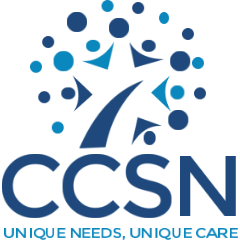Functional Behavior Assessment (FBA)
Helping families and educators understand a child's challenging behavior and develop effective solutions
In order to implement successful interventions to decrease challenging behaviors, the function of the behavior (why the behavior occurs) must be investigated and determined
An FBA is the process of gathering and analyzing information about a student’s behavior. It helps educators in three ways: determine whether the education the student is receiving is appropriate, identify positive interventions that will reduce undesirable behavior, and implement ‘good’ behaviors that can replace ‘bad’ responses.
CCSN completes comprehensive Functional Behavior Assessments and provides evidence-based recommendations to reduce challenging behaviors and teach students how to conduct themselves in certain situations.
The behavioral and psychological experience and expertise of CCSN's clinical team allows us to perform FBAs for individuals with very complex behaviors maintained by multiple different factors
CCSN’s FBAs includes the following components:
- Parent/Caregiver/Educator Interviews - We assess the learner’s current situation through the people who know him/her best
- Records Review - Analyzing previous assessments and evaluations completed by other professionals
- Rating Scales - Questionnaires are given to those who spend a lot of time with the patient and inquire about what they think triggers bad behaviors
- Direct Observation - Direct observation of the learner in their natural environment
- Structured ABC (Antecedent-Behavior - Consequence) Data Collection - The challenging behavior is defined and data is collected on what occurs in the environment before (antecedent) and after (consequence) the behavior occurs
- Functional Summary Statements - Summary statements provide a description of events that are likely to “trigger” inappropriate behavior
- Recommendations - The assessment concludes with a comprehensive list of recommendations to address prevention of the behavior, skills to teach to provide the individual with replacement behaviors, and management strategies to respond to the ‘bad’ behavior if it happens
School Consultations
Partnering with school districts to enhance capacity to support the needs of all students
Program and Agency Consultations
Supporting organizations serving individuals with complex educational, social, vocational and community needs
Professional Development
Delivering specialized training for clinicians, educators, administrators, paraeducators, direct-care staff, and healthcare providers to improve service delivery
Independent Educational Evaluation (IEE)
Expert assessments of student's needs and their educational programming
